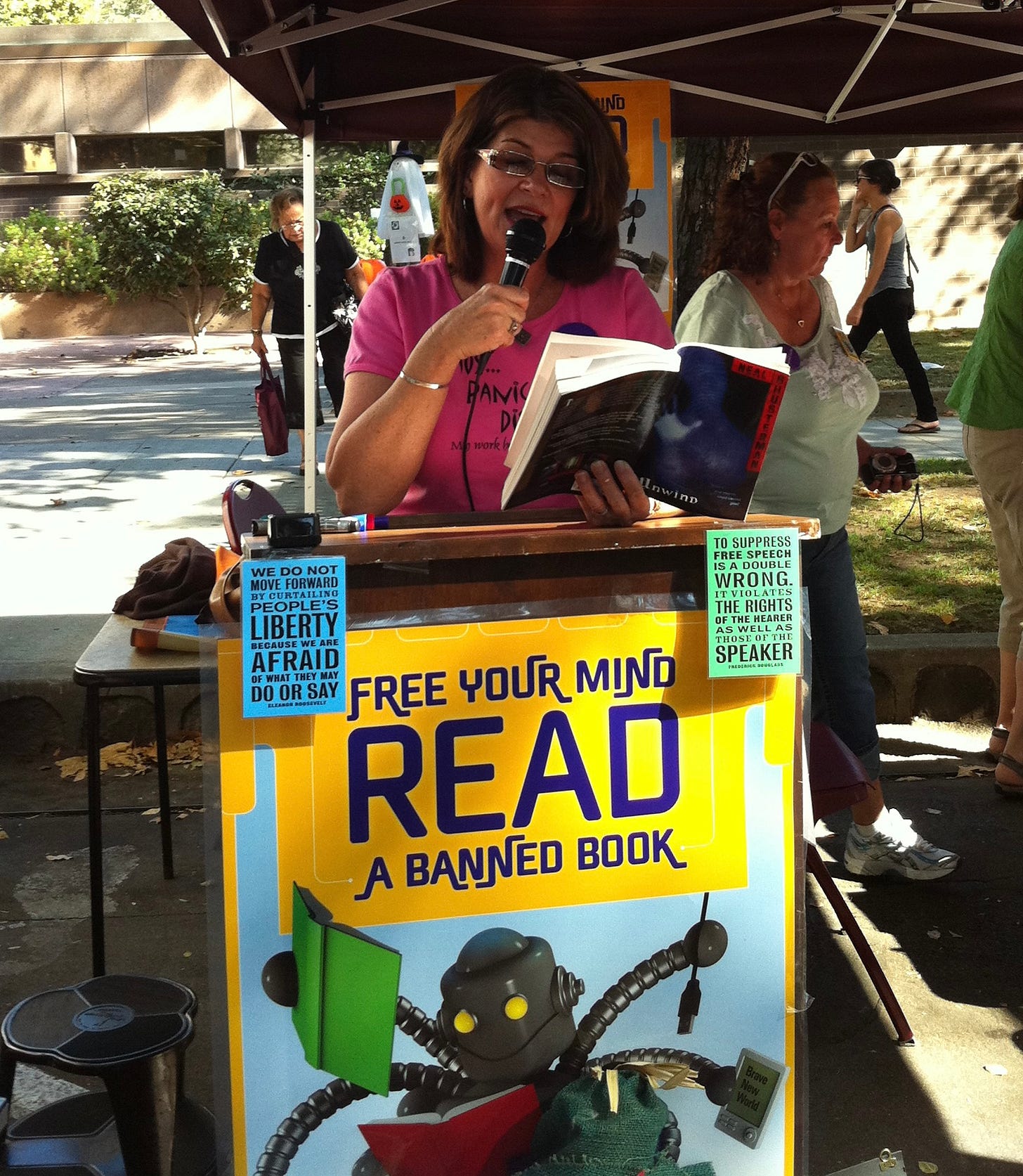While most people are not in favor of banning books, people who are have an outsized effect on which titles are available in the library. Not only because they have formed a powerful national coalition with big money backers, but because they scare those who are responsible for book selection and curation. Someone who is afraid of a jail term for selecting or championing a book deemed inappropriate will become extra careful. Though they know of controversial titles that would serve their patron population, they might not purchase them in an effort to avoid conflict with the censors. And according to the American Library Association, most of the books censors are coming after right now are about LGBTQ people or race (or their authors are people of color or LGBTQ).
Is This Book Gay?
I recently read about a children’s book that was flagged as potentially sexually explicit in an Alabama public library system because the author’s last name is Gay. No, it wasn’t banned. As soon as the details became clear, the book was taken off the targeted-works list. You might think, “Okay, no harm, no foul. That’s good for a chuckle.” But there’s more to it. The story points to the underlying issue of self-censorship.
Here are direct quotes from an NBC News article by Jo Yurcaba. Throughout, bolded emphasis is mine.
The picture book, “Read Me a Story, Stella,” by Marie-Louise Gay is about a girl named Stella who teaches her younger brother the joys of reading, according to the book’s description. … The Huntsville-Madison County Public Library system added the book last month to a list of potentially sexually explicit books to be reviewed and possibly moved out of the children’s sections in its 10 branches, the Alabama Political Reporter first reported.
Anticipation and Avoidance of Book Censors
Jay Hixon, the library system’s public relations director, said in an email Monday that the list was created to “protect the collection from anticipated challenges” and was never intended “as a directive to move or remove materials.”
“The inclusion of the author’s name was the result of a keyword search to identify potentially targeted subject areas,” he said. … He said the library system decided to proactively review its collection “in anticipation of an unprecedented number of book challenges.”
While one might argue that this is mere preparation for the onslaught of book challenges to come, “Hixon noted that the Alabama Public Library Service voted last month to create and post a list of books considered inappropriate for children. The list would be created based on submissions from community members.”
Alright. The librarians are trying to get ahead in the game. They’re trained, they’re the best people to make the decisions, and they’re only identifying materials that might be challenged. They were putting materials in age-appropriate categories. After some press about the process, the books were returned to their original locations. The book review has been put on hold.
Aiding and Abetting the Book Banners
But. Most of the books on the list had keywords such as “lesbian,” “gay,” and “gender.” Some focused on race. In an article on AL.com (Alabama Media) Kim-Yohn, circulation manager at the Madison branch of the library, wondered, “Why are we just unilaterally moving all of this before anyone’s even complained about these books yet?”
Karen Li, the publisher of Groundwood Books (and thus of “Read Me a Story, Stella,” by Marie-Louise Gay) is spot on in her thoughts in the NBC article. It’s as if someone had asked her this question.
“This proves, as always, that censorship is never about limiting access to this book or that one,” Li said. “It is about sending the message to children that certain ideas—or even certain people—are not worthy of discussion or acknowledgement or consideration. This is a hateful message in a place like a public library, where all children are meant to feel safe, and where their curiosity about the world is meant to be nurtured.”
Let’s not do the dirty work of the censors.
Book News
I saw this link to a Guardian article on LitHub and wanted to share. “Penguin Random House launches high schoolers’ award to combat book bans: The publisher’s $10,000 Freedom of Expression prize invites teens to write about a banned book that changed their life, against a backdrop of rising censorship.”
What I’m Reading
I just finished Hester by Laurie Lico Albanese.The premise is that an unhappily married woman (her husband is an addict and a thief who pins his hopes on alchemy) has an affair with the bachelor Hawthorne while her husband is away. A friend recommended it because the protagonist sews and embroiders. As I do these things and am also a fan of The Scarlet Letter, she thought I’d enjoy Hester. I did, eventually, but it took me about 100 pages to get into the story.
I always try to read books from small presses. This past week I read the short novel Journey to Merveilleux City (Picture Show Press) by Stephanie Barbé Hammer. It’s a who-done-it set in a train. While classically fun, it includes updated themes of class, racial discrimination and modern views of spirituality. I wrote a review here.
My Book Challenges
Here on Substack, I recently wrote about my experiences as a high school librarian with book challenges.




